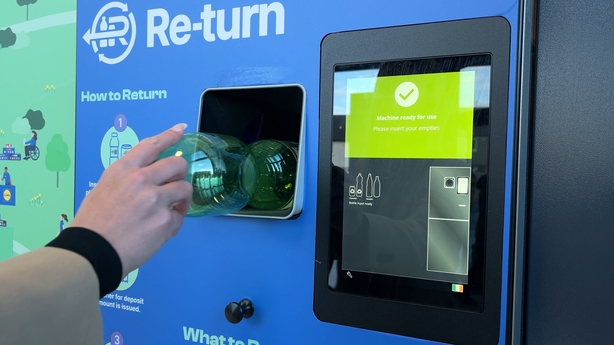A panel of independent experts who annually assess delivery of the climate commitments in the Programme for Government has awarded the Government a 'B minus' grade this year and said Ireland has turned a corner away from being a climate policy laggard.
However, it warned that the climate commitments in the Programme for Government were not enough to achieve a truly sustainable society or to meet national and international climate targets in the first place, and that faster action is now needed.
This is the fourth year in a row that Friends of the Earth has commissioned a detailed analysis and scorecard about how well the Government is delivering on almost 300 climate-related commitments in the Programme for Government.
The overall B minus grade assigned this year is the best yet, so clearly progress is being made.
The 6.8% reduction in greenhouse gas emissions achieved last year helped, as did further reductions in the use of peat and coal for electricity generation.
Also positive were stronger enforcement powers for the EPA, the establishment of the Just Transition Commission, and publication of the long-awaited National Adaptation Framework which outlines infrastructural and other changes required to live with climate change.
The report heaps praise on the Government for the critical role it played in ensuring the European Union passed the Nature Restoration law.
It says that while this was not a commitment in the Programme for Government, it will have long-term positive impacts on things like climate targets, pesticide use and urban biodiversity.

The same is true of the newly established Infrastructure, Climate and Nature Fund.
The assessors were also particularly impressed by the rollout of the nationwide Deposit Return Scheme for plastic bottles and aluminium cans, as well as the new Circular Economy Fund and the National Waste Action Plan.
In assessing the built environment, they noted that Ireland now has the highest level of retrofit per capita in the EU and greenhouse gas emissions from homes are at record lows.
There was slippage, however, in the Government’s performance in the marine sector because of what the report described as "inexcusable delays in their commitment to develop legislation on Marine Protected Areas".
In their overall summation, the independent experts said the Government has achieved a good degree of what it set out to accomplish and laid some of the foundations to build a sustainable country.
However, they emphasised that promises in the Programme for Government were not enough to achieve a truly sustainable society or meet Ireland’s national and international climate targets.
'Turning a corner toward a more sustainable Ireland' - panel chair
The independent panel of experts said that what has been achieved so far is just the start of a long and important journey for Irish society, and momentum will have to accelerate over successive governments to make Ireland a genuinely sustainable economy.
Dr Diarmuid Torney, Associate Professor in the School of Law and Government at Dublin City University, and one of the independent experts who conducted the assessment said the Government has done enough this year to move from a C plus to a B minus grade.
"Nonetheless, the Government shouldn’t be content to rest on their laurels. The progress achieved needs to be sustained over the years ahead," he said.
Read more: 347 million containers returned since Deposit Return Scheme launched
Another member of the expert panel, Dr Paul Deane, Senior Lecturer in Clean Energy Futures at the MaREI centre at University College Cork said the Government has laid a "good foundation to build a decarbonised future".
"The challenge now is to build the structure at speed. Ireland has not lacked ambition when it comes to climate, but it has lacked agility, and this will be the challenge for the next government," he said.
Dr Cara Augustenborg, Chair of the independent expert panel said: "We are turning a corner toward a more sustainable Ireland but still have a long way to go to address worrying trends in environmental health.
"I hope this process shows the next Government that we are always watching, and civil society will continue to demand more ambition and faster implementation of environmental commitments in any future Programme for Government."
Oisín Coghlan, Chief Executive of Friends of the Earth who commissioned the assessment, said his organisation will now be pushing all the political parties heading into the General Election to commit to the faster and fairer climate action we need to stay within the binding limits on pollution we have agreed to under both Irish and EU law.
The independent experts said that this would be their final assessment of the current Government’s climate performance before a general election.
They highlighted the following six major issues they want included in the next Programme for Government regardless of who is in power after the next general election:
- Climate Action: Establish a detailed roadmap for a fossil-free economy and a detailed plan for a sustainable agriculture sector. Publish the National Planning Framework with regional energy targets and prioritise Oireachtas support for electricity grid infrastructure projects. Also, remove all fossil fuel subsidies, including those in the aviation sector.
- Engagement: Develop and implement a coherent, consistent, all-of-Government strategy for climate communications, taking sufficient account of the different strata in our society.
- Nature: Immediately implement the Nature Restoration Law and develop the National Restoration Plan with adequate resources to fund restoration projects on both private and public lands.
- Economy: Align graduate and apprentice training programmes with the needs of Climate and Biodiversity Action Plans, Circular Economy Plans, the need for retrofit and repair services, etc.
- Governance: Undertake further steps to ensure that all Government departments and state bodies act in a manner consistent with the commitments in the climate law, including through amending the legal mandates of state bodies.
- Commitment: Take a more interconnected approach to environmental policy between departments and state commitments in the next Programme for Government in SMART ways (specific, measurable, achievable, relevant and time bound).







